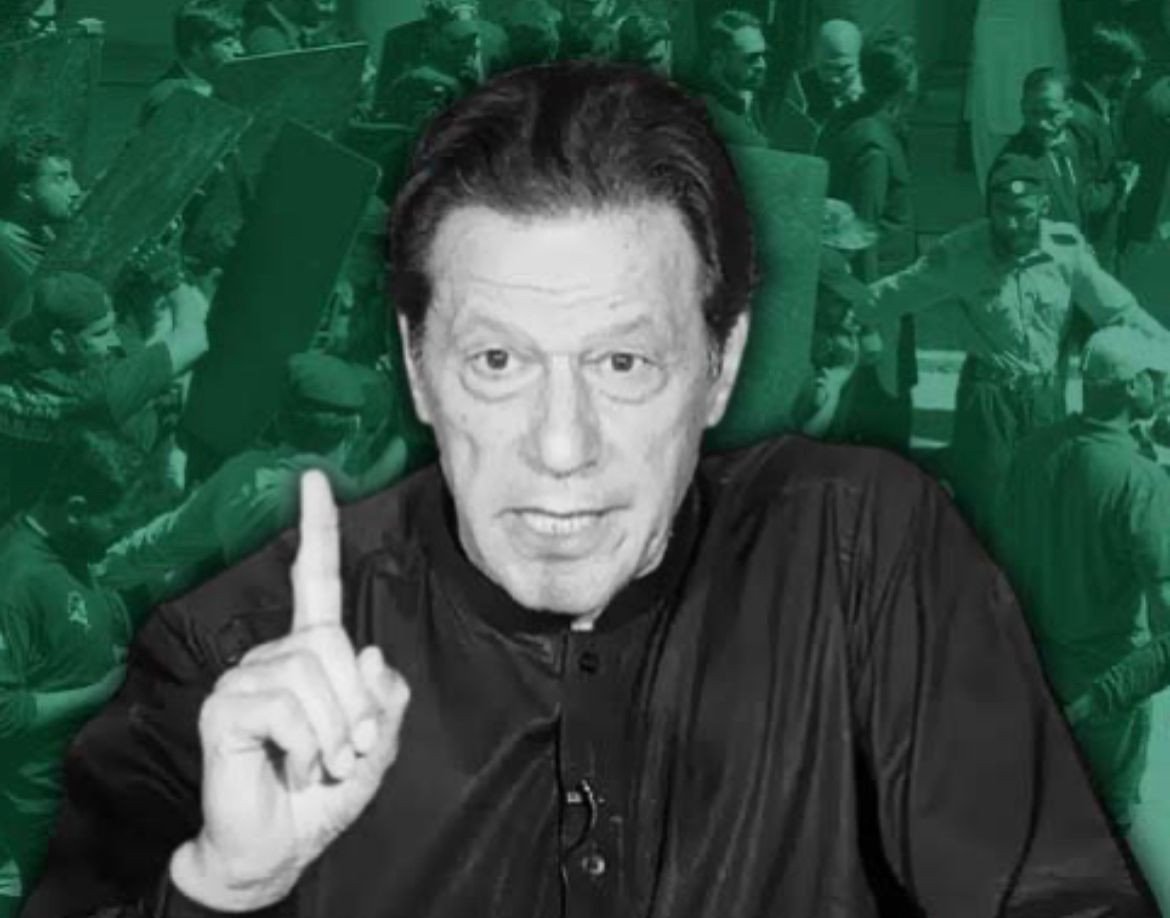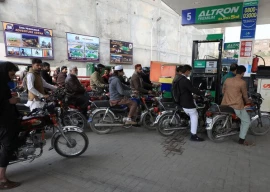
One of Pakistan’s most talked-about personalities and former Prime Minister Imran Khan, has been the highlight of the country's politics for almost a decade now. The beginnings of his political career can be traced back to 1996 when he formed the now infamous Pakistan Tehreek-e-Insaaf party. From having won his first seat in the National Assembly in 2002, Khan went on to become the Prime Minister of Pakistan in 2018. The transition from being a national cricket hero to becoming a popular politician of the country was not without its obstacles. From falling off a container just a few days before the national elections to surviving an assassination attempt and holding some of the largest political rallies in the history of the country, Khan has seen both good and bad days over the course of his political career.
Early Beginnings
While he made it to the National Assembly in 2002, Khan’s prominence in the Pakistani political scene emerged in 2007 when he resigned from the Assembly in protest of General Pervez Musharraf’s candidacy in the upcoming presidential election. Khan was also imprisoned for a short while due to General Musharraf’s crackdown on his critics. Going all out in his show of resistance, the PTI leader boycotted the 2008 general elections in protest to Musharraf’s rule.
As PTI struggled to find its roots in the electoral scene, Imran Khan gained popularity of for his criticism of the government’s corruption and the economic inequality in Pakistan. His critique of the government and the political elite drew attention to him. The former cricket hero who was viewed as a fresh addition to the political scene, could be seen speaking against western ideas and Pakistan’s cooperation with the United States. This intrigued the general public even more. As the Pakistani government formed an alliance with the US government in 2008 to fight militants on the Afghan border, Khan announced this was not in the interest of the country. He also began to criticize politicians for their ‘western ideas’ and for being out of touch with their social norms and culture. This critique was not something unheard of in Pakistan but the fact that it was coming from a man who had previously been a Pakistani celebrity and heartthrob –instead of a religious scholar– irked the curiosity of many.
Rise to political prominence
It was in the campaign leading up to the 2013 national elections that Khan gathered all this support for his opposition to the status quo into massive political rallies. Khan and his party drew large crowds at rallies and attracted the support of several veteran politicians from Pakistan’s established parties. Some opinion polls from 2012 found Imran Khan to be the most popular leader of Pakistan at the time. Just days before legislative elections in May 2013, Khan injured his head and back when he fell from the top of a container at a campaign rally. He appeared on television from his hospital bed hours later to make a final appeal to his voters. This added to his rhetoric of the sole hero fighting for a better ‘naya’ (new) Pakistan. When the results of the 2013 National Elections came in PTI secured its highest totals yet, but the party still won less than half the number of seats won by the Pakistan Muslim League–Nawaz (PML-N), led by Nawaz Sharif. Khan accused the PML-N of rigging the elections. After his calls for an investigation went unmet, he and other opposition leaders led four months of protests in late 2014 in order to pressure Sharif to step down.
Leader of Opposition
As the leader of opposition Imran Khan didn’t let a second go by without putting in efforts to try and oust the ruling PML-N. The Panama Papers linked the Sharif family to corruption through offshore accounts. Khan organized a new set of protests in late 2016 but called them off at the last minute after the Supreme Court agreed to open an investigation. The investigation disqualified Sharif from holding public office in 2017, and he was forced to resign from office. This foresaw the peak in Khan’s political career which came when elections were held the following year, in July 2018. Khan ran on a platform of fighting corruption and poverty. PTI won a plurality of seats in the National Assembly, allowing Khan to seek a coalition with independent members of the parliament. He became Prime Minister on August 18, 2018.
Premiership
As the leader of the government, Khan was expected to be seen in a new light different from his role as the leader of opposition. It was during this time that Khan faced a large number of challenges. Khan struggled with a mounting balance-of-payments crisis. Just weeks into his term as prime minister, the crisis worsened when the United States withheld $300 million in promised military aid, saying Pakistan had not done enough to stem terrorism. The Premier attempted to seek foreign aid from friendly countries. After he was unable to secure foreign aid on favourable conditions from other countries, Pakistan submitted a request for emergency lending from the IMF. He continued to seek foreign aid from other sources and later received promises of investments from China, Saudi Arabia, and the United Arab Emirates. The COVID-19 pandemic, which began in early 2020, aggravated the country’s economic woes. Khan was slow to endorse a lockdown in contrast to the provincial government in Sindh, controlled by an opposition party, which was quick to implement a strict lockdown in March. The PTI government eventually imposed a nationwide lockdown in April; in May the government began restricting lockdowns to localities with high infection rates. All in all the country under PM Khan strived through the pandemic managing to sustain itself despite worsening economic conditions.
Imran Khan’s landmark two day visit to Russia on February 23 in what seemed to be a bold move by Khan turned out to be one of the most controversial and criticized moves he made as Prime Minister. Imran was heavily criticised for having face-to-face talks with Russia's president and shaking hands with him just hours after the war in Ukraine began on 24 February.
Fall from power and back to opposition
In late 2020 the major opposition parties formed a coalition, the Pakistan Democratic Movement (PDM). As frustrations rose over sustained inflation, the opposition moved in March 2022 to hold its own vote of confidence; key allies of the PTI withdrew from the ruling coalition, and several members of the party also defected. The vote was held, and on April 10 Khan became the first prime minister in Pakistan’s history to be removed by a no-confidence measure.
Setting the stage for a comeback by the PTI months after it was ousted, in a landslide victory, the PTI won 15 of 20 seats in the July 2022 legislative elections of Punjab province. As Khan sought to ride his momentum in rallies held around the country, he came under fire in August for threatening in a speech to sue police officers and a judge in Islamabad. He afterward faced charges for that speech, the first charge in a wave of legal troubles in the months ahead.
There are at least 85 case against Imran Khan, including charges of corruption, terrorism, contempt of court, rioting and blasphemy. He was also indicted for selling state gifts during his reign in the famous Toshakhana reference case. On May 9, 2023 Imran Khan was arrested by an anti-graft agency on corruption charges. Government officials alleged that Khan and his wife received land worth millions of dollars as a bribe from a real estate tycoon through a charitable trust. The Supreme Court passed a verdict to release Khan in the Al-Qadir Trust case as the party workers and supporters poured onto the streets in all parts of the country. The May 9 events have now become a significant part of Pakistan’s political history. The events of this day have caused several prominent PTI stalwarts to exit the party after the immense amount of violence and political force displayed in the country.
Even though Imran Khan once managed to secure majority seats in the general elections and become the prime minister of the country, a close analysis of Khan’s political career shows that his popularity seems to peek in times of political distress and opposition. As he stands at edge of what appears to be Pakistan’s most nail-biting cliffhanger, in terms of political events, only time will tell if he is able to regain his strong hold on Pakistani politics. As he faces immense opposition from his political opponents, his followers and voters appear to have increased in number awaiting his return with their hearts in their throats.


1725443747-0/Untitled-design-(5)1725443747-0-165x106.webp)














COMMENTS (1)
Comments are moderated and generally will be posted if they are on-topic and not abusive.
For more information, please see our Comments FAQ